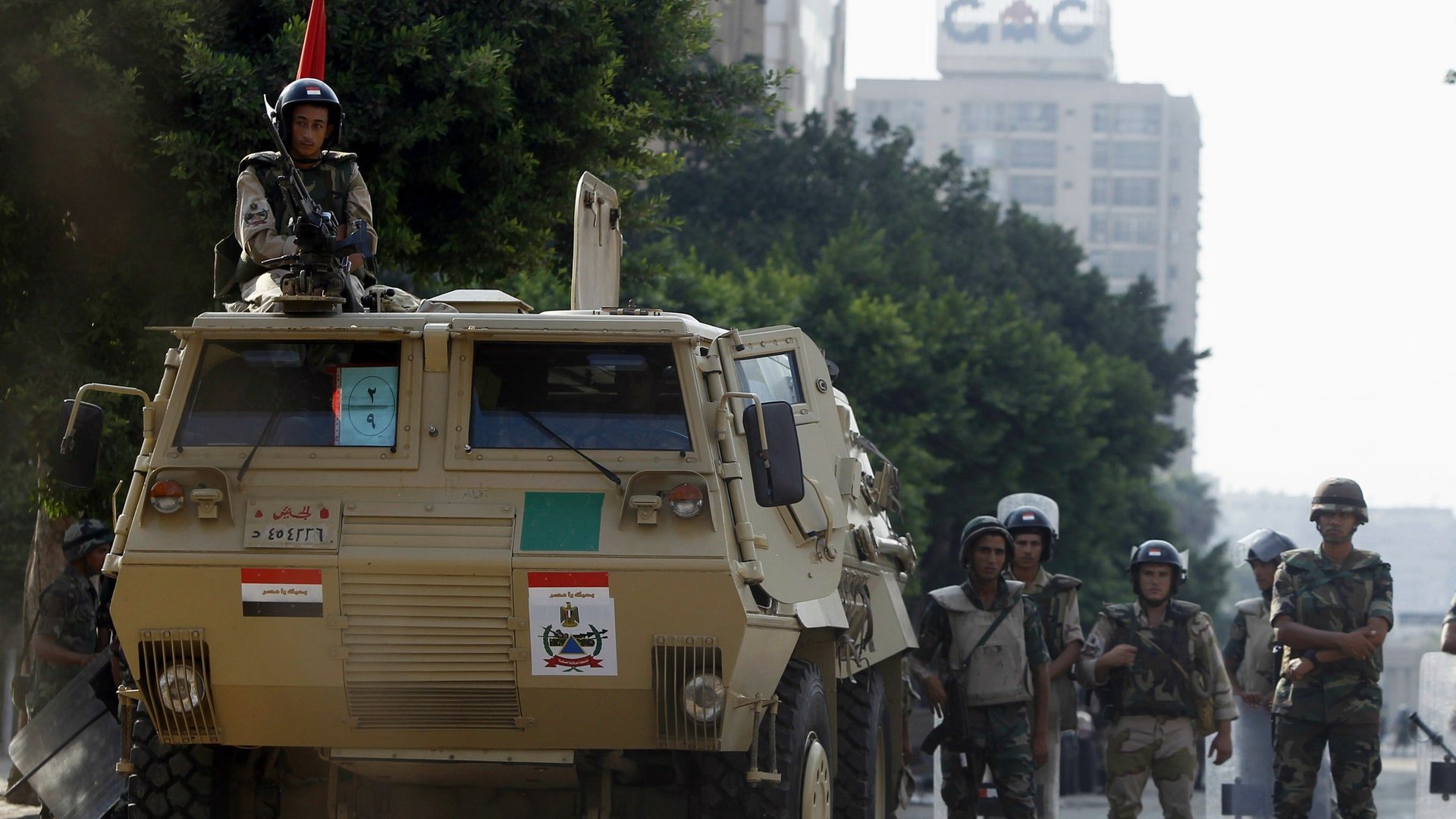Egypt’s interim government is in a good position to fix the economy
Weak economic growth. An unsustainable subsidy budget. Rising inflation rates. Critically low level of foreign reserves. These are some of the underlying concerns that compelled millions to take to the streets demanding the ouster of the Egypt’s first popularly elected president, Mohamed Morsi. And regardless of how history decides to label his overthrow—coup or not-a-coup—what will be more important to the discourse surrounding Egypt’s political transition won’t be how it happened, but rather, the path the country will take from the current transitional period.


Weak economic growth. An unsustainable subsidy budget. Rising inflation rates. Critically low level of foreign reserves. These are some of the underlying concerns that compelled millions to take to the streets demanding the ouster of the Egypt’s first popularly elected president, Mohamed Morsi. And regardless of how history decides to label his overthrow—coup or not-a-coup—what will be more important to the discourse surrounding Egypt’s political transition won’t be how it happened, but rather, the path the country will take from the current transitional period.
On the economic front, Egypt’s best solution is a head-on, no-holds-barred approach to tackling the country’s entrenched structural problems; the current ministers are temporary and can therefore risk political suicide for getting the country’s finances on track ahead of the next presidential election. And with the large influx of Gulf money flowing into the central bank, Egypt is secure with the best financial safety net it’s seen in years. But considering the military’s influence over the current governing body and its desire to maintain broad support, it seems unlikely that the generals will allow the cabinet to risk its own popular appeal for the sake of potential economic prosperity.
If Egypt’s stock market is a barometer of its prospects, an economic overhaul mission may not seem necessary. Since the military take-over, the EGX has been steadily climbing, Standard & Poor’s has revised Egypt’s outlook from “negative” to “stable,” and the combined $12 billion aid package from various Gulf states gives the country some breathing space to cover its critical import bills. It’s tempting to use these recent developments as distractions to sweep the country’s economic ails under the rug, but truly getting Egypt’s financial house in order will require more than just improved investor confidence and stop-gap funding. It needs the kind of fiscal-tightening that is almost always unpopular in the short-term, but can be properly managed with a competent governing body that clearly communicates the importance of these reforms to the public.
And if there ever was a time to embark on these drastic strategies, it’s now. Austerity reforms certainly run the risk of increased political instability, but if changes aren’t made soon, Egypt’s economy will return to the brink of collapsing, as it was in the final days of Morsi’s tenure. The interim cabinet has the opportunity to make decisions that are based on sound principles rather than political longevity.
There’s good reason to believe the new ministers have the competent part down. They’ve been more aptly characterized as seasoned technocrats than revolutionary ideologues. Heading up the cabinet is Prime Minister Hazem el-Beblawi, who, at 76 years old, is well-known for his liberal economic beliefs and has served as finance minister—a post from which he voluntarily resigned after the 2011 Maspero massacre. Since his resignation, El-Beblawi authored numerous articles on Egypt’s political economy, writing very frankly on the “abnormal” budget deficit, unsustainable subsidy pattern, and potential of the IMF loan to strengthen the economy.
Appointing an economist as Prime Minister signals interim President Adly Manour’s commitment to addressing economic matters during the transitional phase. While the new architects of Egypt’s economic roadmap have demonstrated an understanding of the mission they must undertake, the question that lingers is whether or not they’ll be allowed to take it.
The interim minsters have shown no signs of political aspirations beyond the transitional period, but the powerful military institution that orchestrated Morsi’s overthrow has always had an entrenched interest in maintaining popular support. After suffering a brief fallout with many Egyptians due to its heavy-handed governance in the wake of Hosni Mubrark’s ouster, the military is now basking in their revived status as the “protectors of the revolution.” Posters of General el-Sisi are plastered on walls throughout Egypt and songs dedicated in his honor are played on local airwaves.
The military has always been the strongest institution in Egypt, and few ever doubted that it would be an influential force over the interim government. But with General El-Sisi assuming the position of deputy prime minister in addition to his role as minister of defense, the inextricable link between the two organizations couldn’t be more conspicuous. Morsi’s military overthrow was a fresh reminder of who calls the shots in Egypt’s political affairs. Despite the illustrative careers and esteemed perspectives of those now in charge of Egypt’s economic matters, it is unlikely that the interim cabinet will be able to embark on any economic reform missions without the blessing of the generals who brought them to power.